
Sidney Irving Smith was an American zoologist.

The Asteriidae are a diverse family of Asteroidea in the order Forcipulatida. It is one of three families in the order Forcipulatida.

Cadulus is a large genus of small tusk shells in the family Gadilidae. It contains over fifty-one described species.
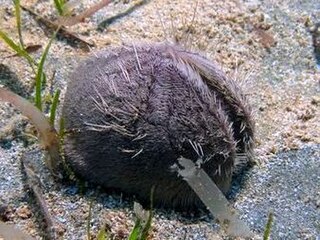
The heart urchins or Spatangoida are an order of sea urchins.

The Echinacea are a superorder of sea urchins. They are distinguished by the presence of a rigid test, with ten buccal plates around the mouth, and solid spines. Unlike some other sea urchins, they also possess gills. The group is a large one, with species found worldwide.

Pleurotomella is a genus of sea snails, marine gastropod mollusks in the family Raphitomidae.

Gymnobela is a genus of sea snails, marine gastropod mollusks in the family Raphitomidae.

Bela is a genus of sea snails; marine gastropod mollusks in the family Mangeliidae.
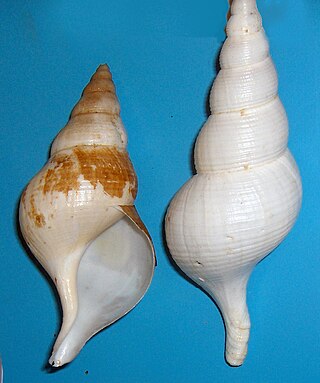
Colus is a genus of sea snails, marine gastropod mollusks in the family Colidae, the true whelks and the like.
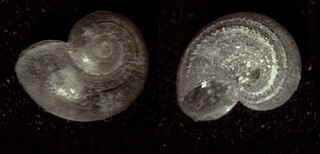
Skenea is a genus of small to minute sea snails, marine gastropod mollusks in the family Skeneidae.

Boreotrophon is a genus of sea snails, marine gastropod mollusks in the subfamily Pagodulinae of the family Muricidae, the murex snails or rock snails.
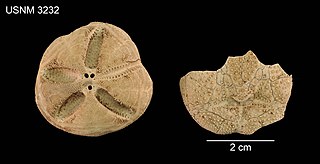
Abatus cordatus is a species of sea urchin in the family Schizasteridae. It is native to shallow seas surrounding certain island groups in the southern Indian Ocean. The body is protected by a hard test or shell which is covered with spines. The female broods its young in deep pockets on the upper surface, retaining the young in place with specialised spines. American zoologist Addison Emery Verrill first scientifically described A. cordatus in 1876.

Astriclypeus mannii is a species of sea urchin of the family Astriclypeidae. Their armour is covered with spines. It is placed in the genus Astriclypeus and lives in the sea. Astriclypeus mannii was first scientifically described in 1867 by Verrill.

Brissus agassizii is a species of sea urchins of the family Brissidae. Their armour is covered with spines. Brissus agassizii was first scientifically described in 1885 by Döderlein.

Brissus gigas, also known as the giant heart urchin, is a species of sea urchins of the family Brissidae. Their armour is covered with spines. Brissus gigas was first scientifically described in 1947 by H.B. Fell.

Brissus meridionalis is a species of sea urchins of the family Brissidae. Their armour is covered with spines. Brissus meridionalis was first scientifically described in 1950 by Ole Theodor Jensen Mortensen.

Brissus unicolor is a species of sea urchins of the family Brissidae. Their armour is covered with spines. Brissus unicolor was first scientifically described in 1778 by Nathanael Gottfried Leske.

Pteraster is a genus of sea stars in the family Pterasteridae.
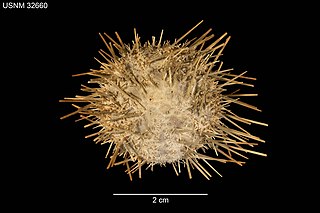
Lytechinus pictus, commonly known as the painted urchin, is a sea urchin in the family Toxopneustidae. It occurs on shallow reefs in the tropical and subtropical eastern Pacific Ocean, off the coasts of California, Central America and South America as far south as Ecuador.

Brissus is a genus of echinoderms belonging to the family Brissidae.




















